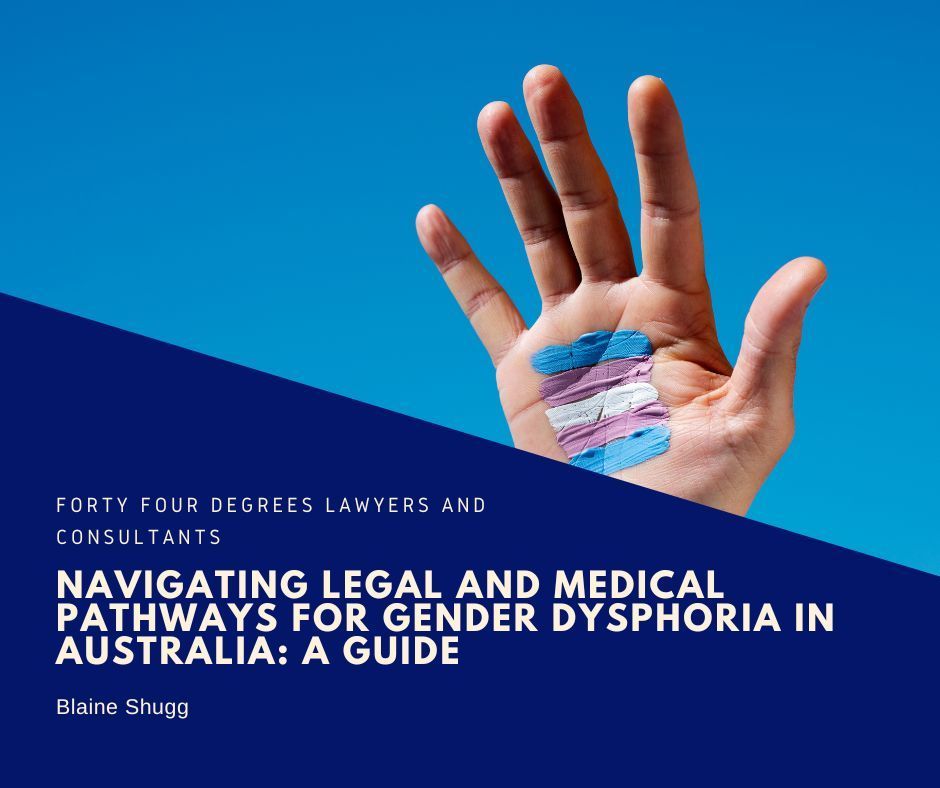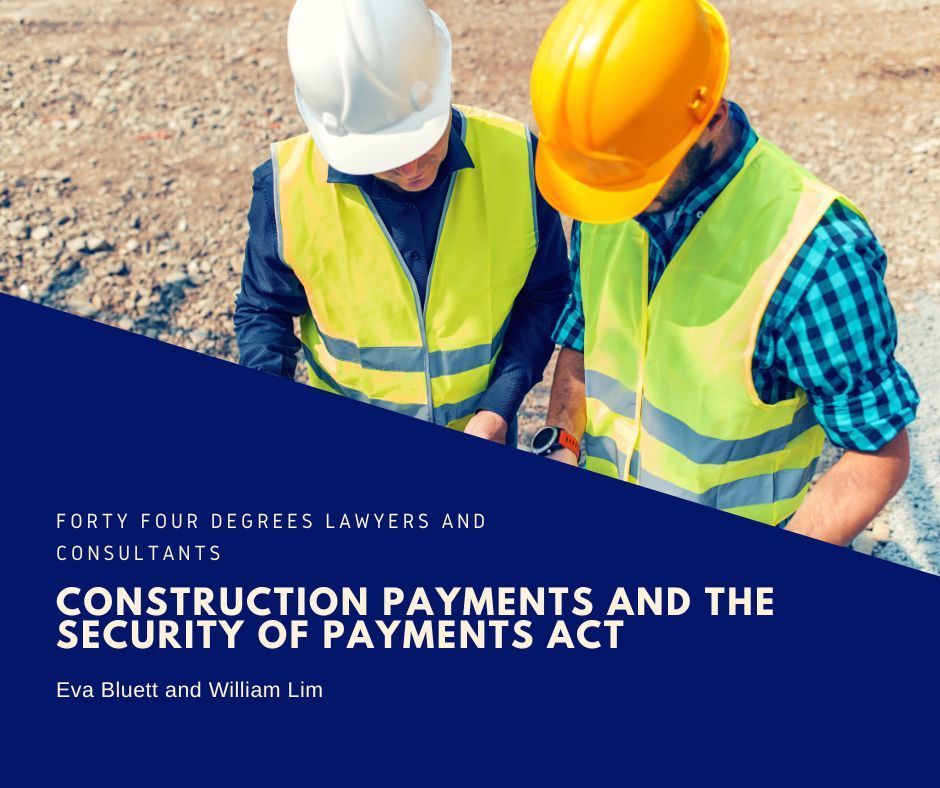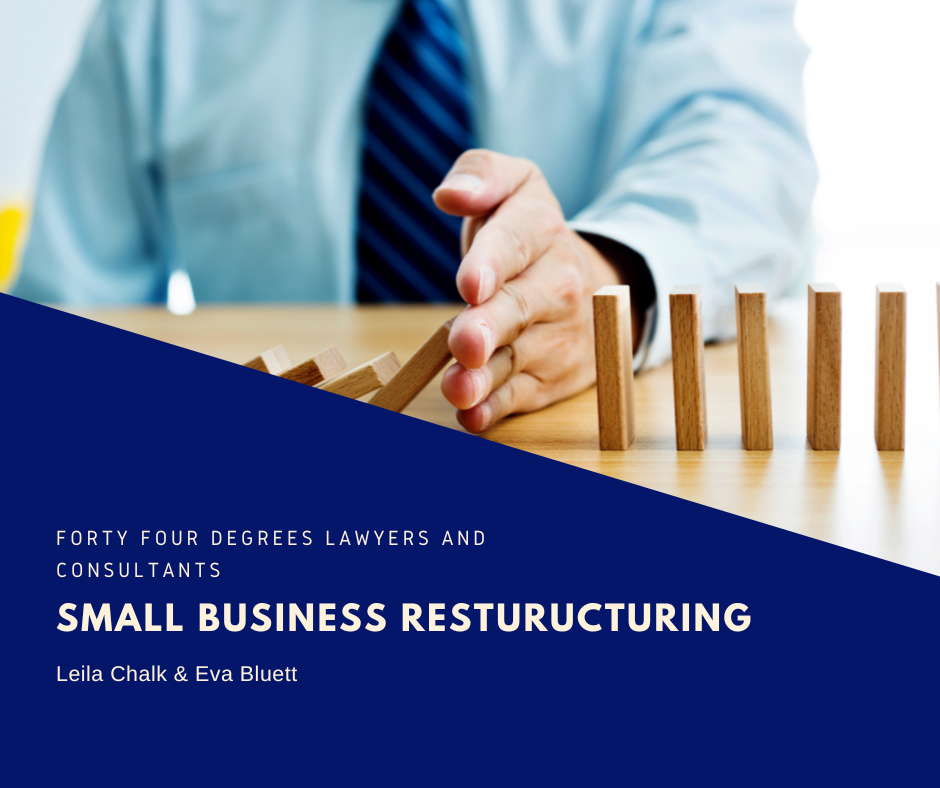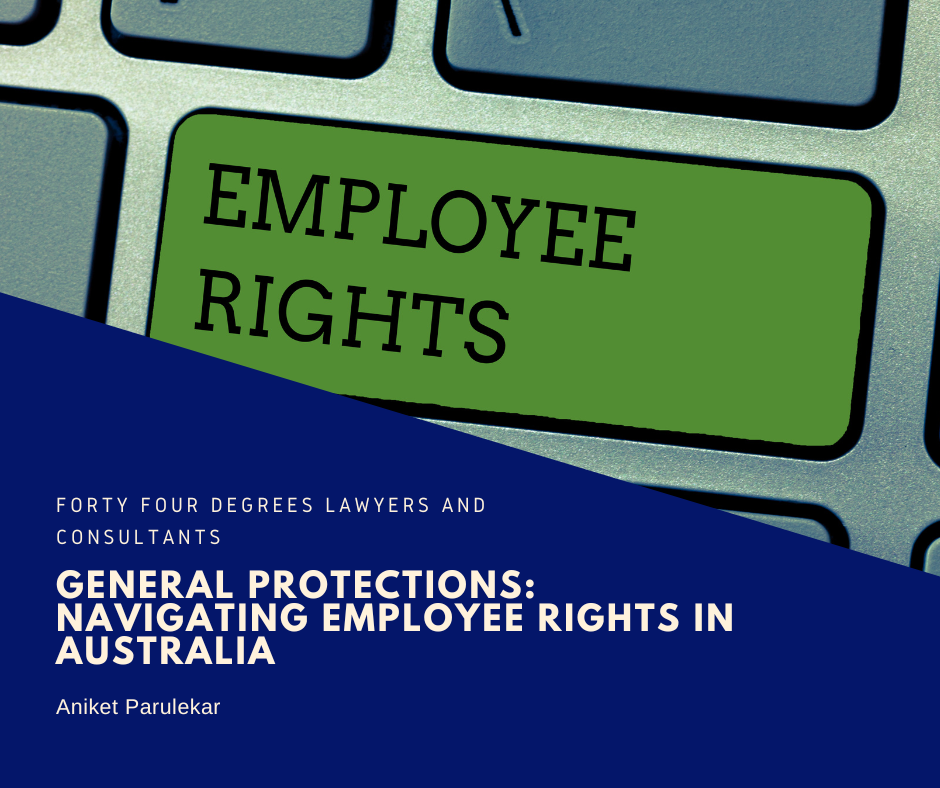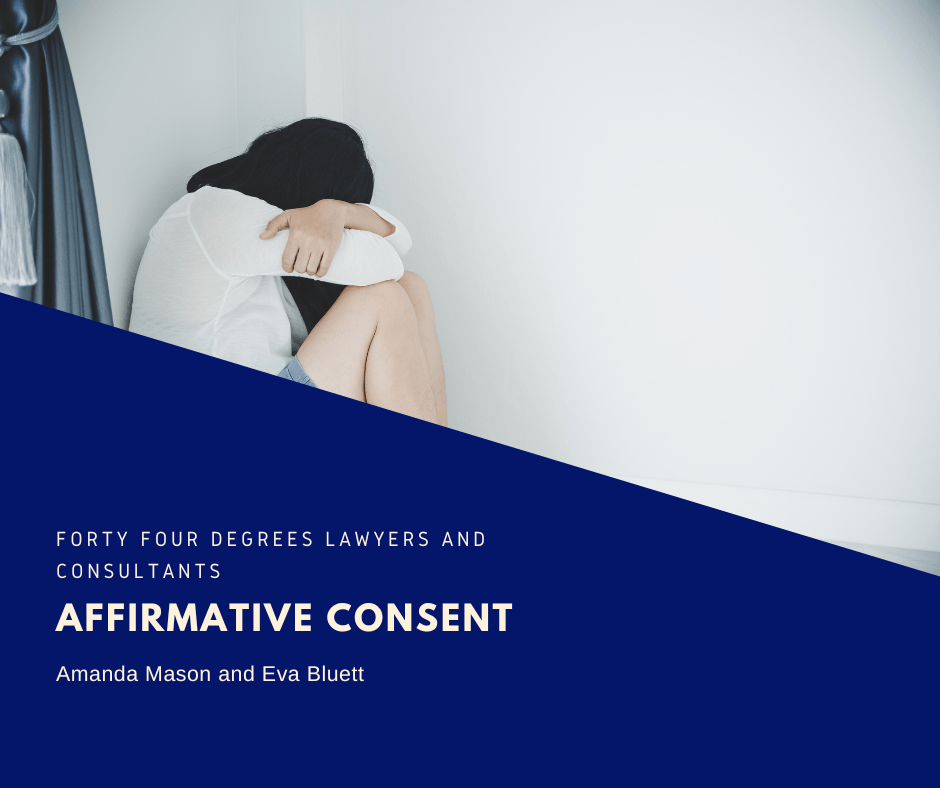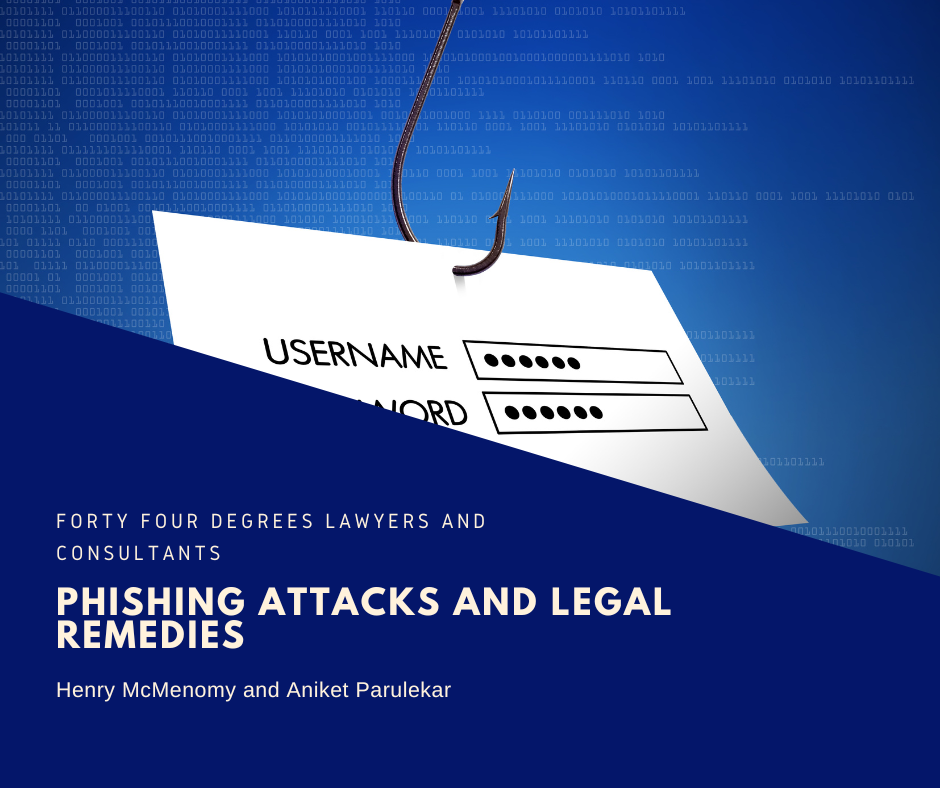Spousal Maintenace: What, When, and How Much?
Spousal maintenance is available in Australia to ensure that former spouses are supported after divorce and de facto separation.
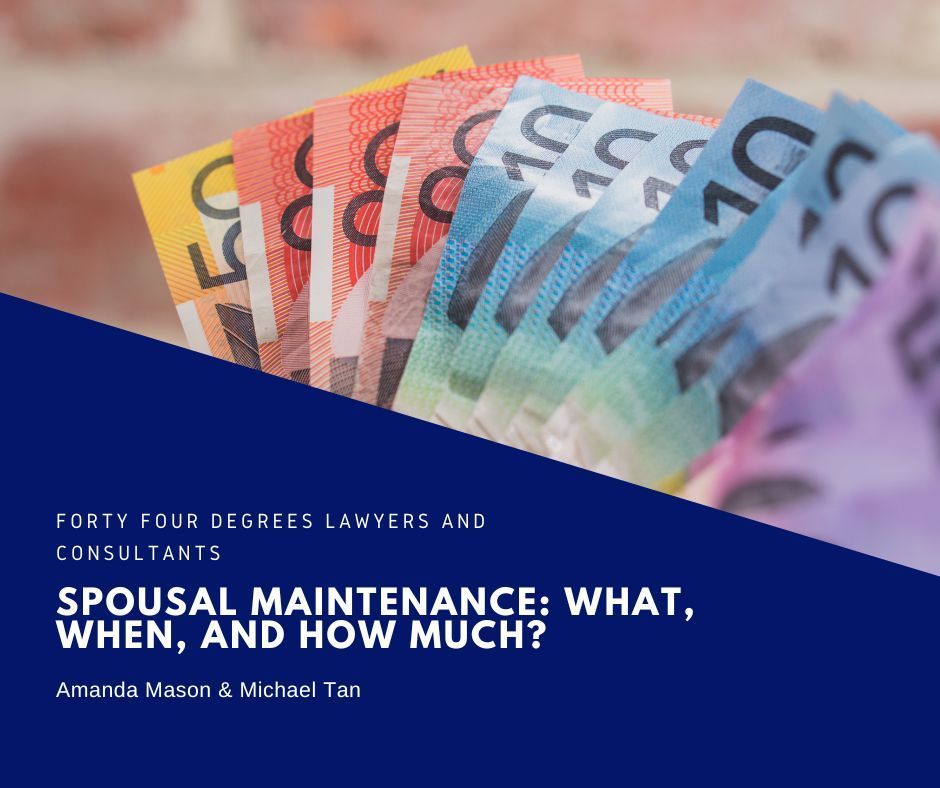
What is spousal maintenance?
The Family Law Act 1975 authorises Australian courts to order spousal maintenance where former partners are unable to support themselves. Spousal maintenance is often referred to as alimony in other countries. In Australia, spousal maintenance payments are typically made for one of two reasons.
First, in many marriages a spouse (historically the wife) will sacrifice their professional development in favour of domestic work. These relationships operate on the continued expectation that where one spouse contributes to the home, the other will provide for the family’s income. Thus, in the event of divorce the court expects this relationship to continue and will require the breadwinner to contribute to the homemaker.
Second, the court also orders maintenance where one spouse is no longer able to support themselves because they are caring for a child, or is physically or mentally unwell. The court expects their partner to support them even after separation.
Who does spousal maintenance apply to?
You may be entitled to spousal maintenance if you are currently married, recently divorced, or separated from your de-facto partner. If you are recently divorced, you have 12 months from the date of the divorce order to file your maintenance application. If you were in a de-facto relationship, you have 24 months from the date of separation to file your maintenance application.
How does the legislation operate?
There are three steps in assessing spousal maintenance.
- The court looks to whether a spouse seeking maintenance is entitled to maintenance (s 72(1)).
- The court looks to whether the spouse whose maintenance is sought after is reasonably capable of providing maintenance (s 72(1)).
- The court determines the amount of maintenance with reference to subsection 75(2).
Is the spouse seeking maintenance entitled to it?
In order for a spouse to be entitled to maintenance, they must be unable to support themselves ‘adequately’ (s 72). Here, the word ‘adequately’ does not mean that without support they would be impoverished. Rather, the question is whether without maintenance they would be able to enjoy a standard of living similar to what they had in their relationship (In The Marriage of Nutting (1978) 30 FLR 555 at 556). More often than not, ‘adequately’ relates to a level of living lower than cohabitation as the parties benefit less from the economies of scale that come from cohabitation.
Additionally, there must be a reason why the spouse is unable to support themselves (s 72(1)). This may be because of parental responsibilities, caring responsibilities, age, physical disability, mental disability, or the foregone professional development they sacrificed over the course of their relationship.
Is the spouse whose maintenance is sought after capable of providing it?
In determining whether a spouse is capable of maintaining their ex, the court will assess their ability to gain employment, their financial resources, and their necessary expenditure.
The court will assess the spouse’s capacity for work. This includes age, education, training, work experience, and their physical and mental skills. The court will consider whether it is reasonable for the spouse to work. This often takes into account a spouse’s age, and any additional responsibilities they may have.
In assessing financial resources, the court looks broadly even going so far as assessing the income of parties expected to contribute to a historical relationship. In the Marriage of Lusby (1977) 30 FLR 180 the court took into account the income of the husband’s second wife in determining whether he could support his first wife.
If liability has been established how does the court determine the amount of maintenance?
The court looks broadly at three main factors:
- The parties’ income and financial resources;
- The existence of duties to other stakeholders; and
- Factors relating to justice.
Earning capacity and financial resources: How will the court assess me?
Subsection 75(2)(b) requires the court to look at the ‘physical and mental capacity’ of the partners for ‘appropriate gainful employment’. Although no explicit wording is used, the underlying question that needs to be assessed is the partner’s respective earning capacity (DJM v JLM (1998) FLC 92-816). In DJM the husband changed professions from a management consultant to an academic after separation. The court assessed him as if he was a management consultant, expecting him to work harder so that his ex-wife could maintain her standard of living. Even partners who are unemployed may have sufficient earning capacity (Scott v Scott (1994) FLC 92-457). The court looks to the circumstances of the unemployment and whether future employment is possible.
Importantly, the court does not factor into its calculations income received as a form of social welfare (s 75(3)). Thus, income from Centrelink, NDIS, or a pension will be disregarded.
Existence of duties to other stakeholders: What about my children?
The primary caregiver to a child of marriage requires more financial support. Additionally, the court takes into account a spouse’s duty to children in new relationships as well as responsibilities for parents who need care (ss 75(2)(d),(e)).
Factors relating to justice: But what if I sacrificed property to date them?
Subsection 75(2)(o) allows the court to be flexible and respond to factors that are individual to every case. It should be noted that there is not too much case law on spousal maintenance as a lot of matters are settled before reaching judgment. Below are some examples of how the court may deal with certain situations.
The court may take into account to past contributions. For example In the Marriage of Soblusky (1976) 28 FLR 81 at 114 the court accounted for the husband transferring the matrimonial property to his wife for no consideration.
Further the court may account for the impact that the marriage has had on a spouse’s earning capacity. In the Marriage of Oliver (1979) 1 SR (WA) 125 at 132 a woman with modest wealth was with a very wealthy man for only five years. The court held that she should be in a position that was ‘comfortable but not ostentatious’.
Additionally, the court may look to acts of goodwill made by one side. In the Marriage of Beck (No. 2) [1983] FLC 91-318 at 78,168 the court took into account that the wife had to sacrifice her interest in her late husband’s estate in order to marry the respondent.
After taking into account these various considerations the court will award maintenance to be made either as a lump sum or in periodic payments.
If you are recently separated or divorced and looking to receive maintenance, or have been served a maintenance application please reach out to a member of our team on 1300 892 237 or by sending an email to [email protected]
Contact Us
We’re an Australian Law Firm promoting a nuanced, personal touch. We have the skills you need to resolve your case quickly and with a positive outcome. Our straight talking team stays close to simplify what is most often a complicated process. We help individuals and businesses with technology and startup law, property law including conveyancing and leasing, commercial law, civil litigation, wills, estates, bankruptcy, insolvency, criminal law, and professionals facing investigations and charges from their regulatory body.
We have a connected network of talented lawyers in Melbourne CBD, Dandenong, Ballarat, and Ivanhoe East.
Fill out the form or call us on 1300 892 237.
We will get back to you as soon as possible
Oops, there was an error sending your message.
Please try again later or call us on 1300 892 237.

